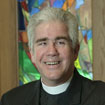Commentary on Psalm 15
A Response to the First Reading
“O LORD, who may abide in your tent? Who may dwell on your holy hill?” (15:1). We might understand the psalmist’s answer to this question as a description of Abraham and Sarah, who hosted the three men. Abraham and Sarah did not give in hope of gain (cf. 15:5). Moreover, the church understands Abraham and Sarah as leading a blameless life, doing what is right, lavishly casting credit on the neighbor, and honoring those who fear the LORD (cf. 15:2-4). As a response to the three men’s visit to Abraham and Sarah, Psalm 15 reminds us that dwelling with God is intrinsically linked to (I am intentionally not saying results from) how we live. Worshiping God, entering into God’s holy presence, involves a commitment to live in the world, to live in our everyday lives, the same way we live in God’s presence. Psalm 15 was most likely spoken by priests who confronted worshipers entering the Temple Mount to join in the worship of God in the temple.1 As such, Psalm 15 links worship and discipleship.
Contemplating God’s Presence
Psalm 15:1, which asks God who might hope to “abide” or “dwell” in God’s “tent” or on God’s “holy hill,” invites us to contemplate the common thread of the Old Testament and Gospel Readings–being in God’s presence. Regardless of what they originally meant, “holy hill” speaks of worship and “tent” of home or everyday life. As Abraham and Sarah invited the three visitors to dine outside their tent, as Mary and Martha welcomed Jesus into their home, so we invite and welcome God’s nearness or presence into our house of worship, as well as our homes and lives.
To take being in God’s presence seriously is both comforting and unsettling. The psalms speak of the joy of God’s presence (21:6) and the shelter of God’s presence (31:20). Yet, in the psalms, God also declares, “No one who practices deceit shall remain in my house; no one who utters lies shall continue in my presence” (101:7). The psalmist says of God, “For you are not a God who delights in wickedness; evil will not sojourn with you” (5:4).
So, after eating the fruit of the tree, the man and his wife hid themselves from God’s presence among the trees of the garden (Genesis 3:8). And, knowing ourselves as we do, human beings have been uncomfortable in the joy and shelter of God’s presence ever since. The preacher might help the congregation to seriously reflect upon being in God’s presence, both on the “holy hill” of worship and the ordinary places where we live and move and have our being.
How Shall We Behave?
Deep reflection on the reality of being in God’s presence inevitably leads us to ask, “How ought we to behave? ” Psalm 15 offers eleven answers. “To walk ‘blamelessly’ is no claim of absolute sinless perfection, but describes a life that is ‘whole’ and ‘complete’ in its consistent devotion to Yahweh’s way.”2 Those who “do what is right” endeavor to fulfill God’s expectations and regularly avail themselves of God’s gift of repentance, forgiveness, and restoration as they seek to maintain their relationship with God and neighbor.
Those who dwell with God are people of integrity. Their heart, speech, and deeds are obviously aligned with God’s purpose. Those who dwell with God “speak the truth from their heart” (15:2). They speak and act clearly without deceit in ways that demonstrate that their heart is grounded in a relationship with God. Concretely, they do not slander with their tongue, do no evil to their friends, and take no reproach against their neighbors. Like God’s own self, those who dwell with God despise wickedness and honor those who stand by their word even when doing so hurts them. They do not build up wealth and power on the backs of the poor and less fortunate, or pervert justice for personal gain.
In sum, those who dwell with God abandon trusting their ability to shape and control their lives and the world and instead put their trust in God. Once again, this sounds like Abraham, whose life reminds us that to do so is an ongoing process.
The Promise
Psalm 115 concludes with the promise, “Those who do these things shall never be moved” (15:5). They will not be “shaken” as in an earthquake or caused to stumble on rough, treacherous ground. Contemplating these words after the earthquake in Haiti is most unsettling. These words ring hallow still. The devastation and death remain incomprehensible. Yet, the psalmist nevertheless intends to convey that those who dwell with God have God’s help and security here and now. The preacher might explore what never being moved and God’s help and security in the here-and-now, does and does not mean.
Preaching Psalm 15
Psalm 15 invites the preacher to consider the joyous and unsettling reality of dwelling in God’s presence, a reality that is ours because of Christ Jesus, “in whom we have access to God in boldness and confidence through faith in him” (Ephesians 3:12). The preacher might then consider how we are to live in God’s presence, and the story of Abraham might provide a wonderful commentary on the psalm’s instructions. The preacher might also use the promise that concludes the psalm to explore what it does (and does not) mean to “never be moved.” Jesus was never moved from his relationship with God and his trust in God. Yet, Jesus nevertheless suffered death on the cross.
1Roger E. Van Harn and Brent A. Strawn (eds.), Psalms for Preaching and Worship: A Lectionary Commentary (Grand Rapids: Eerdmans, 2009), 78.
2Roger E. Van Harn and Brent A. Strawn (eds.), Psalms for Preaching and Worship: A Lectionary Commentary (Grand Rapids: Eerdmans, 2009), 79.

July 18, 2010